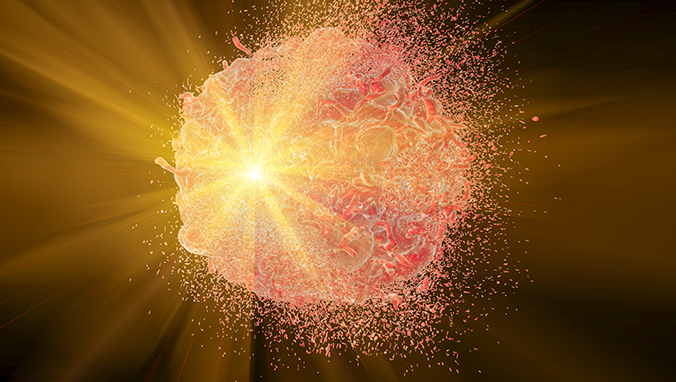Adrenocortical adenocarcinoma
What is adrenocortical carcinoma? A malignant tumor that occurs in the adrenal cortex is called adrenocortical carcinoma. Children under 12 years old are relatively common, and only a few occur in adults.

pathological changes: (1) naked eye Observation: The tumor volume is generally large, often above 100g, even up to 1000g, showing aggressive growth, unclear state, brown or polychromatic cut surface, soft quality, often bleeding, necrosis and cystic changes ; (2) Microscopy: the poorly differentiated tumor cells have large atypia, and multinuclear tumor giant cells and mitotic images are often seen; well-differentiated like adenoma, if the tumor is small and has an envelope, it is difficult to distinguish it from adenoma. The difference between the two can be referred to the following points: ① cortical cancer often has extensive bleeding and necrosis, and adenoma rarely has necrosis; ② those who damage the capsule, invade blood vessels and surrounding tissues are generally cancer; ③ there are many mitotic images, greater than 2/ 10 high-powered fields are mostly malignant, and adenoma has few nuclear divisions; ④ carcinoma has extensive and obvious nuclear atypia, multinuclear tumor giant cells, larger nucleoli and inclusions in the nucleus; ⑤ tumor volume and weight have certain reference Value, the diameter of adenoma is mostly below 5cm, and the weight is less than 50g.
Adrenal cortical cancer is mostly functional, and often shows female virilization and adrenal hyperfunction, and is prone to local infiltration and metastasis. If there is lymphatic and bloodway spread, the average survival time is 2 years. The identification of functional and non-functional adrenal cortical tumors mainly depends on clinical manifestations, biochemical and hormone determination.
Related Articles

- Is the second-grade clear kidney cancer living up to 5 years?
- Nuclear grading is an important prognostic factor for renal clear cell carcinoma and has been included in the WHO classification. Currently, a four-level grading system is generally used. T
- 2020-08-02

- Symptoms that recur after kidney cancer resection
- Kidney cancer is a malignant tumor of the human kidney. The kidney is one of the most important organs. Once sick, it is very painful for the patient. We need to be checked and treated in t
- 2020-07-31

- 96% cure rate for early renal cancer resection
- There are many patients with kidney cancer. The impact of such diseases on patients is very large. Early treatment is needed in time. Otherwise, more serious consequences will occur. Then,
- 2020-07-31

- Treatment of adrenal medulla
- Adrenal medullary adenoma is a tumor that occurs in the chromaffin tissue of the adrenal medulla, sympathetic ganglia, parasympathetic ganglia, or other parts. This tumor continuously or in
- 2020-07-24

- Is stage 3 clear kidney cancer early?
- The definition of kidney cancer has different views in academia. Most scholars claim that the diameter of less than 3cm is called small kidney cancer, and there are reports that the diamete
- 2020-07-24

- What to eat after kidney cancer resection
- What supplements to eat after kidney cancer resection? After kidney cancer resection, you should pay attention to: low salt diet, eat light and vitamin-rich foods. Different types of patients
- 2020-07-24
